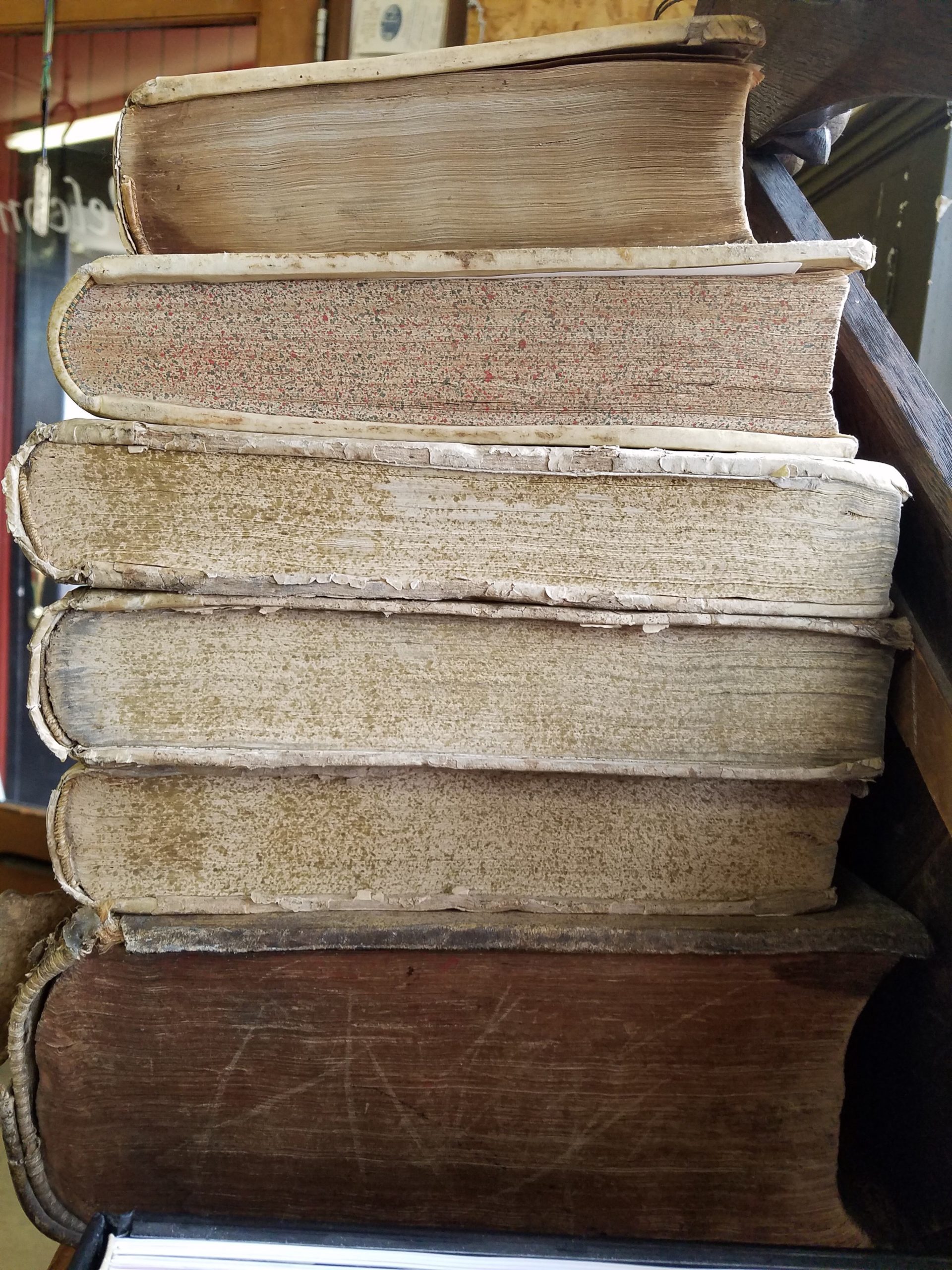Still on the subject of podcasts in the midst of a Busy Holiday Season®️, there’s another one I feel completely compelled to share, even if absolutely none of you will be interested in joining me: The History of English podcast (recently misheard rather intriguingly as the “History of English Podcasts”) is completely wonderful.
The show, running since 2012, appears to be an extracurricular passion project of a solo practitioner lawyer from North Carolina, who says absolutely nothing about himself on the show. But he has quite a lot to say: he presents the history of English in meticulous hourlong increments, starting from the absolute dawn of the knowable history of human speech all the way up to—God knows, because seven years in, he’s only gotten a little beyond Sir Gawain and the Green Knight, a few hundred momentous years shy of Shakespeare.
Anyone interested in etymology or English history or both would almost certainly enjoy the show. One thing I find tremendously charming is the way that Kevin (for that is the host’s name) delivers etymological facts by theme as he marches forward in time. An episode documenting the messy bloodline of King Alfred the Great, for example, provides him an opportunity to talk about Old English words for family and inheritance. But just when it veers close to feeling like a lengthy fact dump, the show manages to keep moving along narratively.
But anyway, enough about the show. Let’s talk about me.

I’ve had a long-simmering interest in the history of languages. Before the internet, I remember staying up late with my parents’ encyclopedia, reading the cross-references to work out how languages are related to and descended from each other. I briefly flirted with the idea of majoring in linguistics, before realizing that (at my university, at least) the subject was a great deal more medical, more wetly throaty, than I’d anticipated.
But there’s no shame in being a dilettante, I hope, and Kevin from the podcast gives me hope about even the prospect of being a devoted learner and teacher in one’s spare time around a busy lawyer’s schedule.
Okay, actually, enough about me. Back to the show.
The early episodes of the podcast go way, way back. By episode 7, we’re still in the land of Proto-Indo-European, which is the language that gave birth to most European and some Asian languages. It was spoken so long ago, by people who did not write, that all we know about it has been reconstructed by linguists working backward from modern languages like forensic analysts, finding traces of ancient words in the similarities and gaps between current words.
This absolutely blows my mind, and always has. Not only do linguists figure out little clues about dead languages by finding commonalities between their daughter languages; they also bring in geography and botany and biology and genetics to connect the dots. For example, we find some clues about where these Proto-Indo-Europeans lived by analyzing which words they had, and didn’t have, to describe the world around them—no words for “monkey” or “palm tree,” so not the jungle, and none for “olive” or “grape,” so a colder climate. Words for certain kinds of sheep only, which tells us something about what kinds of animals they could have raised, and that in turn tells us something about what their world looked like.
This kind of thing is completely bananas to me: can you imagine doing this as a job? Can you imagine tracing the spoken words of people who died five thousand years ago, and also getting to learn a lot about sheep in the process? Goals, I tell ya.
Anyway.

Something I find so fascinating about the history of words is that it traces the history of thought, and the history of sound. These are things that don’t tend to leave impressions in the archaeological record, and they can be obfuscated in written histories. But words can’t help but shift and change with use, like a well-worn pair of jeans thinning around the wearer’s knees.
And one thing that language doesn’t lie about is the thought process that goes into the mundane everyday choices of words that average people make. Despite the best intentions of grammarians and usage experts everywhere, language never has been primarily about perfection. It’s about communication. It does its job to the extent that people can understand what others want to say, and can make themselves understood in the process.
People of all stripes are natural geniuses at inventing new, easier, and more nuanced ways of saying what they mean. Sometimes they borrow and break old words to do so. Sometimes, this way, words come to mean their opposite: pairs like “guest” and “host,” “give” and “take,” and “black” and “white” come from the same Indo-European root word. Through the messy process of speech occurring over generations of people delicately navigating their societies, these words took on seemingly nonsensical new meanings. And just like we’re all writers now, we’re all the masters of how to communicate our meaning, our humor, and our nuances exactly how we please.
Okay, now back to me.
In Book One, I indulged myself by writing a little sub-subplot about linguistic history. (This is the pleasure of writing a book: no one can stop you). I imagined a pair of late-Victorian scholars chasing a theory about how one might get to know the ancient inhabitants of Europe by looking at the words they borrowed from each other. As it happens, I think the theory as presented in the book is wrong, but the great thing about fiction is that, again, no one can stop you. I can do that on purpose and no one is allowed to criticize me!

I imagine most of you are either long gone or reading out of mere politeness by this point. But to sum it all up: I think there’s something tremendously beautiful about how language can pry open our deep history. Every time we open our mouths to speak, we’re not only articulating our own present thoughts—we’re also building upon the feelings and frustrations and joys and creativity of millions of people over thousands of generations. All the people that came before us still live through us in this little way, carved into our bodies in our DNA and carved into our brains with the words we keep shifting and borrowing and laughing and shouting.
Further recommended reading if you are interested: John McWhorter’s piece, which includes a fascinating idea that the weird way English uses the verb “to do” (as in: “do you like me?” Where every other self-respecting language would say: “Like you me?”) actually comes from Celtic languages.
And on that note, Merry Christmas to all!




